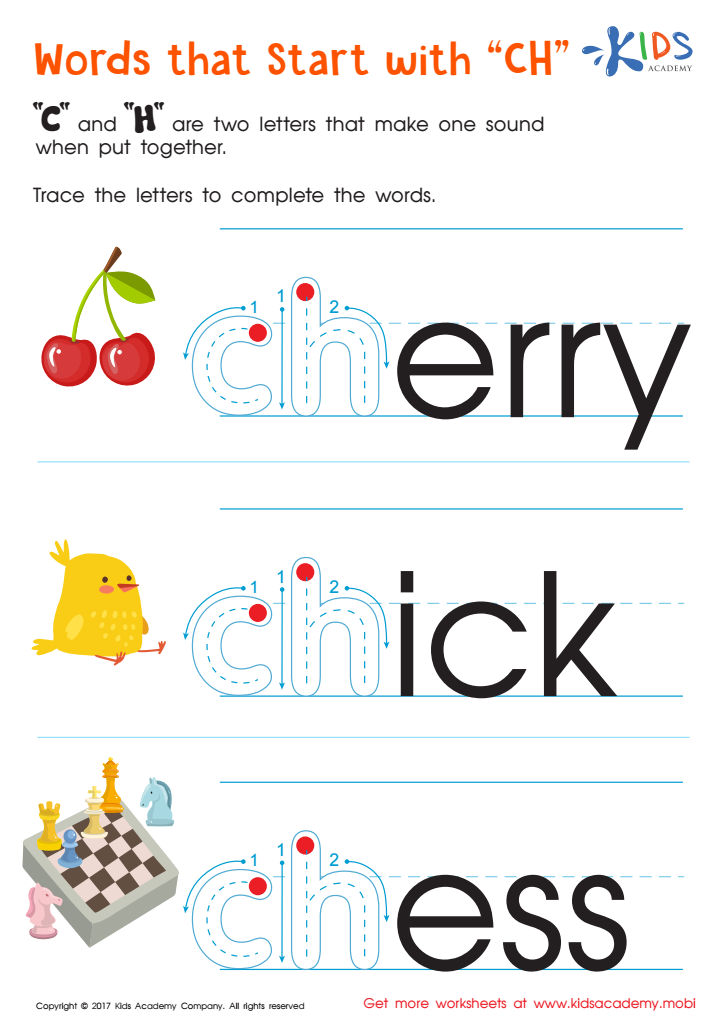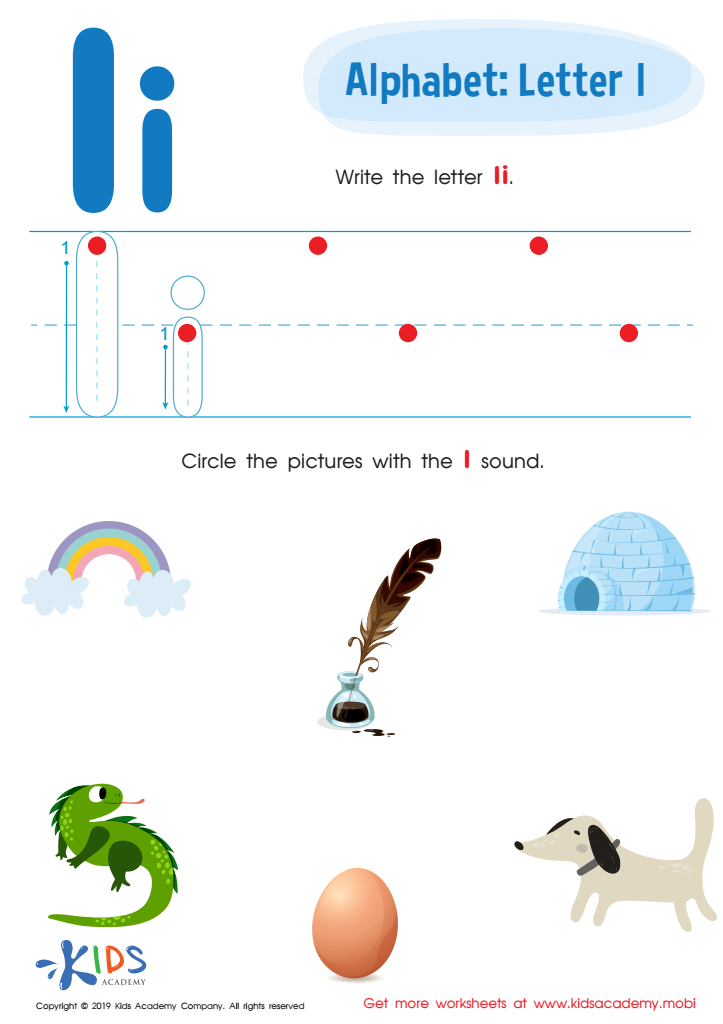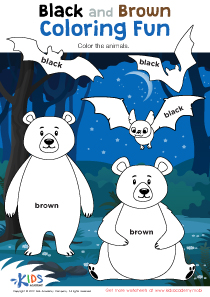Phonics Skills English for Beginners Worksheets for Ages 3-7
3 filtered results
-
From - To
Unlock the magic of reading with our "Phonics Skills English for Beginners Worksheets for Ages 3-7". Perfect for young learners, these engaging worksheets are designed to help children grasp the fundamentals of phonics. Each colorful and interactive activity bolsters emergent literacy through letter recognition, sound matching, and beginning word formation. Ideal for early readers, these resources make learning fun and effective, fostering essential language skills. Tailored for ages 3-7 and suitable for ESL students, our worksheets provide a foundational step towards fluent reading. Enhance your child's phonemic awareness with Kids Academy’s expertly crafted worksheets. Start your phonics adventure today!


Words That Start with "ch" Spelling Worksheet


Letter I Tracing Worksheet


Long and Short E Worksheet
Phonics skills are foundational for young children learning to read, making them crucial for ages 3-7. Phonics teaches children the relationship between letters and sounds, enabling them to decode written words. This method builds a strong foundation for reading fluency and comprehension, critical skills for academic success.
From a developmental perspective, ages 3-7 are formative years during which the brain is highly receptive to new information. Introducing phonics early can capitalize on this cognitive flexibility, fostering smooth transitions from recognizing letters to reading full sentences. Phonics provides tools for word recognition and pronunciation, greatly enhancing vocabulary and communication skills.
For parents and teachers, investing in phonics education means promoting literacy skills that extend beyond just reading. Children who grasp phonics are more likely to excel not only in language arts but also across other subjects. Reading stimulates cognitive development, imagination, and critical thinking.
Moreover, phonics education boosts children's confidence and motivation. As they master the ability to read, they often become more eager to explore books and educational content independently, fostering a lifelong love of learning. Thus, emphasizing phonics for beginners ensures that children have the lucrative skills needed for academic and personal growth.
 Assign to My Students
Assign to My Students
















